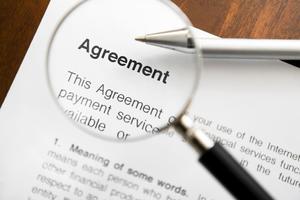

By Matt Derody: Whether you are looking to buy, rent, sell or let a property you will need to consider engaging the services of a real estate agent. Laws vary from state to state, so there are regional differences for operations like signing a lease or making an offer on a property. Most people chose to engage an agent, here we look at how they can help.
Real estate agents can help in many different ways. The main advantages are: saving time, providing in-depth knowledge about a local property market, giving access to their network of professionals, negotiating on your behalf and ensuring all paperwork and legal requirements are dealt with correctly.
Looking for a place to buy or rent is a long and arduous process that - even for locals – can take months. A good agent will understand your requirements and preferences, to be able to alert you when a matching property comes onto the market.
If you are selling or letting a property, an agent will know how to manage effective property inspections and viewings. They will keep track of prospective buyers or renters, and follow up on leads, saving you from wasting your time fielding enquiries; and filtering out non-serious buyers.

A good real estate agent will not only have a broad general knowledge of the local market, but will also be able to share all sorts of useful facts about the community, such as: demographics, average prices, public transportation, local politics and planning regulations, schools, etc. The better agents will also have insider knowledge about similar properties in the neighbourhood, to help get you the right price.
It takes time, background knowledge and experience to stay on top of what's happening in the real estate market. There are big variations from state to state and even large differences between on suburb and another. An agent will share the current data with you to help the buying/sale process, which may include:

Using the services of a good real estate agent means that you’ll also gain access to their professional network. Successful agents work together with other professionals whose services you might need: from tradesmen to surveyors, conveyancers, solicitors, marketing professionals and others. They can help you find other professionals with a good reputation, competitive prices and references of happy previous customers. Sellers and investors should expect their real estate agent to have a database loaded with potential buyers and renters as well as business contacts.

Negotiating prices is one of the aspects of real estate transactions that many people dread – especially in a foreign country or place where you don’t have local knowledge. A skilled real estate agent will have the experience and legal knowledge that is needed to negotiate a deal in your best interests. They will not affected by stress or emotional attachments to a property so they are more capable of calmly managing the negotiation process, using facts and data to best represent your interests and, of course, withholding any sensitive or personal information to maintain confidentiality.
Like any legal transaction, buying, selling, letting or renting a property is accompanied by a thick stack of paperwork. It’s the duty of a real estate agent to manage the administrative side of a sale for you, ensuring that no detail is overlooked. This will both save time, as well as avoiding process errors that could later cost money to get fixed. An agent will be able to draw up a 'Contract of Sale' and help provide guidance on legal and financial services. In addition, they will be able to put you in touch with specialised real estate lawyers as well as being able to give general legal advice in the absence of solicitors or conveyancers.

www.localagentfinder.com.au is an independent website where you can find and compare different real estate agents in Australia. Worth checking out if you are considering using a real estate agent in Australia.